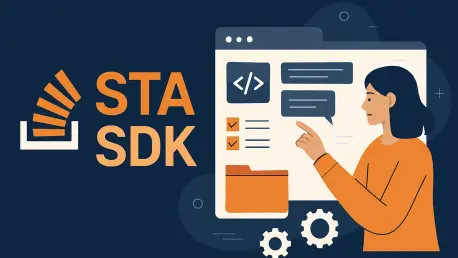I’m thrilled to sit down with Vijay Raina, a renowned expert in enterprise SaaS technology and software design. With his deep expertise in software architecture and thought leadership in the field, Vijay offers invaluable insights into the latest advancements in tools like Stack Overflow for Teams. Today, we’re diving into the 2025.7 release, exploring how it transforms collaboration and integration for enterprise environments, and uncovering the potential it holds for developers and organizations alike. Let’s get started!
Can you walk us through the major highlights of the Stack Overflow for Teams 2025.7 release?
Absolutely, the 2025.7 release is a significant step forward for Stack Overflow for Teams. It focuses on turning previous foundational investments into tangible improvements. Key updates include the introduction of the Teams SDK, which offers developers a robust way to extend and integrate the platform, and a revamped commenting system that enhances collaboration. These updates build on past work to modernize infrastructure and integrations, making the platform more powerful for enterprise users.
What makes the new Teams SDK such an important tool for developers working with Stack Overflow for Teams?
The Teams SDK is a game-changer because it goes beyond basic API endpoints to deliver a more streamlined and supported developer experience. It provides a higher-level abstraction, which means less manual work for developers, along with features like TypeScript definitions for all endpoints. This ensures better reliability and ease of use, empowering developers to build custom solutions with confidence.
How can organizations practically apply the SDK to enhance their use of Stack Overflow for Teams?
Organizations can leverage the SDK in several exciting ways. For instance, they can create internal tools or extensions tailored to their unique workflows, integrate Teams with existing systems like CI/CD pipelines or project management platforms, and even develop custom applications to distribute knowledge across the enterprise. It’s all about removing barriers and enabling innovation that aligns with specific business needs.
Can you elaborate on how the SDK facilitates integration with other enterprise systems?
Certainly. The SDK makes it seamless to connect Stack Overflow for Teams with other tools in an organization’s ecosystem. For example, you could integrate it with CI/CD pipelines to automatically pull in documentation or troubleshooting data during builds, or link it to project management tools to sync tasks and knowledge sharing. This kind of integration centralizes knowledge management, reduces silos, and boosts efficiency across teams.
Let’s shift gears to the redesigned commenting features. How do these changes improve team collaboration?
The commenting overhaul is designed to make discussions clearer and more engaging. Threaded replies organize conversations so they’re easier to follow, while the redesigned interface for replying and upvoting feels intuitive and uncluttered. Additionally, @ mentions allow users to directly notify the right teammate, ensuring no one misses critical input. Together, these features streamline communication and foster better dialogue within teams.
What specific challenges in enterprise settings do these new commenting features address?
In enterprise environments, knowledge capture and communication can often get messy with large teams or complex projects. These commenting features, originally honed on the public Stack Overflow platform, tackle that by providing structure to discussions. They help teams document insights in a way that’s easy to revisit, encourage meaningful exchanges, and ensure that expertise is shared effectively, even across distributed or siloed groups.
How do you see these updates impacting the way enterprises manage and share knowledge over the long term?
Over time, these updates—especially the SDK and commenting enhancements—will transform how enterprises handle knowledge. The SDK enables custom integrations that make Stack Overflow for Teams a central hub for information, while the commenting features ensure that knowledge isn’t just stored but actively discussed and refined. This creates a living repository of expertise that can adapt to an organization’s evolving needs, ultimately driving innovation and productivity.
What’s your forecast for the future of enterprise collaboration tools like Stack Overflow for Teams?
I believe we’re heading toward an era where enterprise collaboration tools become even more integrated and intelligent. Platforms like Stack Overflow for Teams will likely leverage AI to surface relevant knowledge proactively, deepen integrations with other SaaS tools, and offer hyper-personalized experiences based on user roles or workflows. The focus will be on breaking down barriers to information access while maintaining security and scalability for large organizations. It’s an exciting space to watch!









